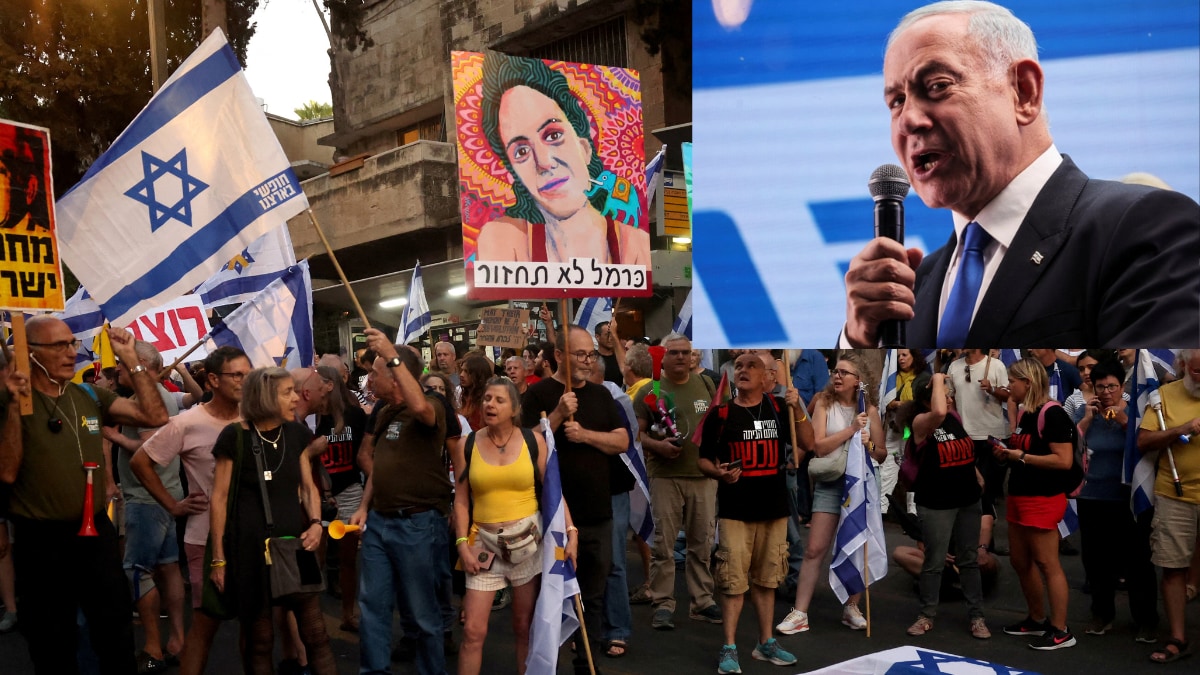The recovery of six hostages’ bodies from Gaza, shot ‘in the back of the head’ by Hamas militants, has plunged Israel into grief and anger. While the Israeli government faces mounting pressure to secure the release of the remaining hostages, it insists on maintaining control of the Philadelphi Corridor, a key sticking point in the stalled ceasefire negotiations.
Public Outrage and Demands for Action
The news of the six hostages’ execution sparked an outpouring of grief in Israel, accompanied by widespread public anger towards the government’s perceived failure to secure their release. The Israeli Prime Minister, Benjamin Netanyahu, acknowledged the public’s sorrow and sought forgiveness for failing to save the hostages, appealing for national unity in the face of this tragedy.
Protests and Calls for Resignation
Thousands of Israelis took to the streets in Tel Aviv for a second consecutive day, demanding accountability from the government. The protesters accused the government of negligence and demanded the resignation of Netanyahu and his defense minister, Yoav Gallant, for not reaching a deal that would have saved the hostages’ lives. The demonstrations highlight the growing public pressure on the government to demonstrate a swift and decisive response to the hostage crisis.
Hamas’s Threats and Stance
Hamas, the Palestinian group responsible for the October 7 attack on southern Israel, issued a stark warning, threatening to return the remaining hostages “inside coffins” if military pressure continued. Their spokesperson, Abu Obeida, claimed that “new instructions” had been given to militants guarding the captives, implying a more aggressive approach if Israeli forces approached their detention areas.
Hamas’s Demands for Control of the Philadelphi Corridor
A major sticking point in the ongoing negotiations is Hamas’s insistence on a complete Israeli withdrawal from the Philadelphi Corridor. Hamas sees this withdrawal as a crucial step towards achieving their objectives and ending the conflict. The Israeli government, however, remains adamant about maintaining control of the corridor, believing it essential for preventing the smuggling of weapons and hostages out of Gaza. This deadlock underscores the complexity of the situation and the difficulty in finding a solution that satisfies both parties.
International Pressure and the Stalemate
Netanyahu appealed to the international community to apply maximum pressure on Hamas to end the conflict. He believes that international pressure is essential for forcing Hamas to make concessions. While international actors like the United States, Egypt, and Qatar have played roles in mediating the negotiations, progress remains slow, and a resolution seems distant.
Unresolved Issues and the Future of the Negotiations
Despite the calls for immediate action, the path forward remains uncertain. The fate of the remaining 97 hostages hangs in the balance as both sides remain locked in their respective positions. Whether a negotiated settlement is possible or the conflict continues to escalate is a question that will determine the future of the region.
Take Away Points
- The death of the six hostages signifies a stark escalation of the conflict and highlights the risks associated with the current military operations.
- The ongoing negotiations are stalled by significant disagreements over the Philadelphi Corridor and the release of the hostages.
- The Israeli government faces a wave of public discontent and pressure to secure the release of the remaining hostages, while maintaining a strong stance against Hamas.
- The international community’s role in resolving the conflict remains crucial, but its ability to bridge the divide between the two parties remains uncertain.
- The immediate future of the conflict is shrouded in uncertainty, with the potential for both negotiated solutions and further escalation.









